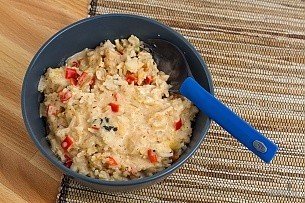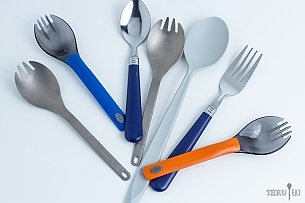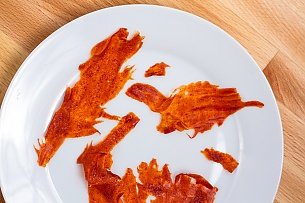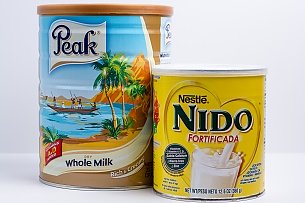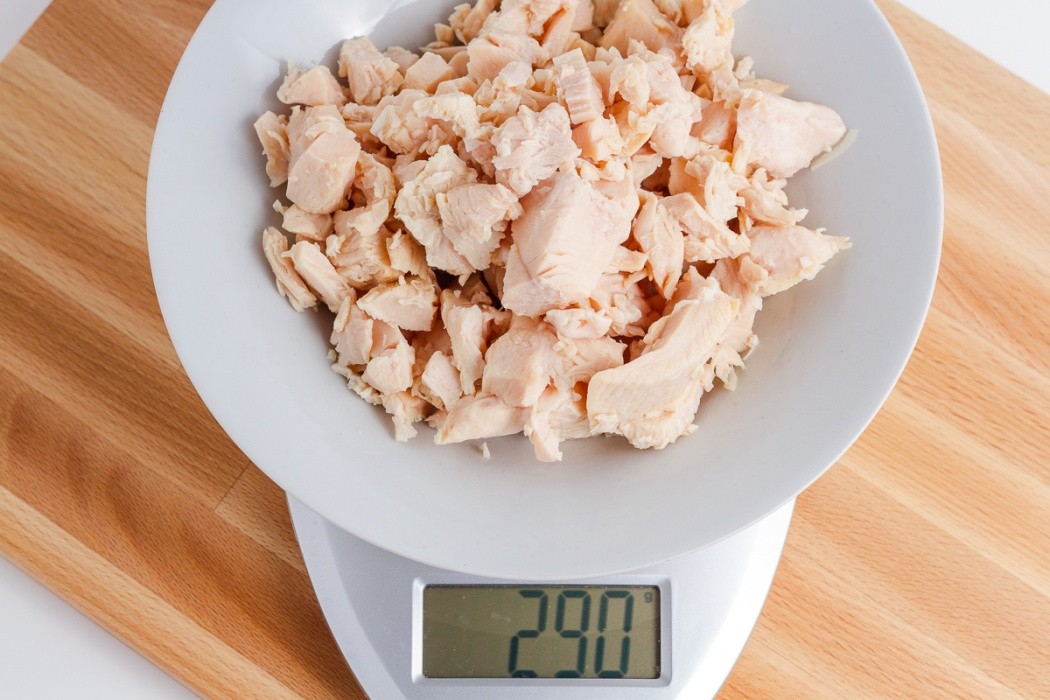
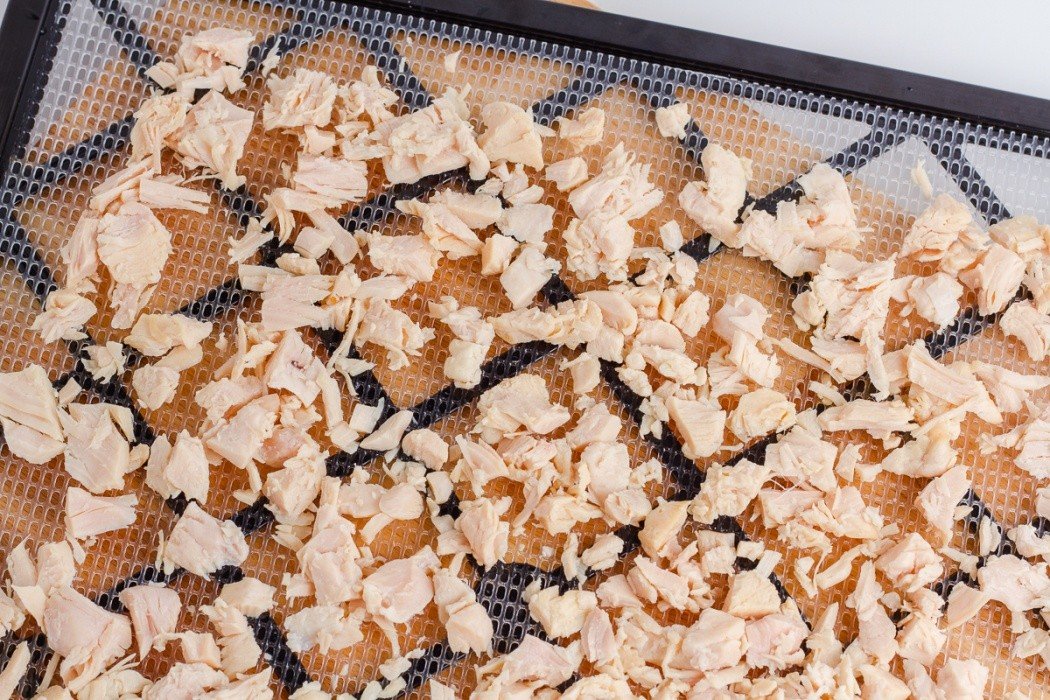
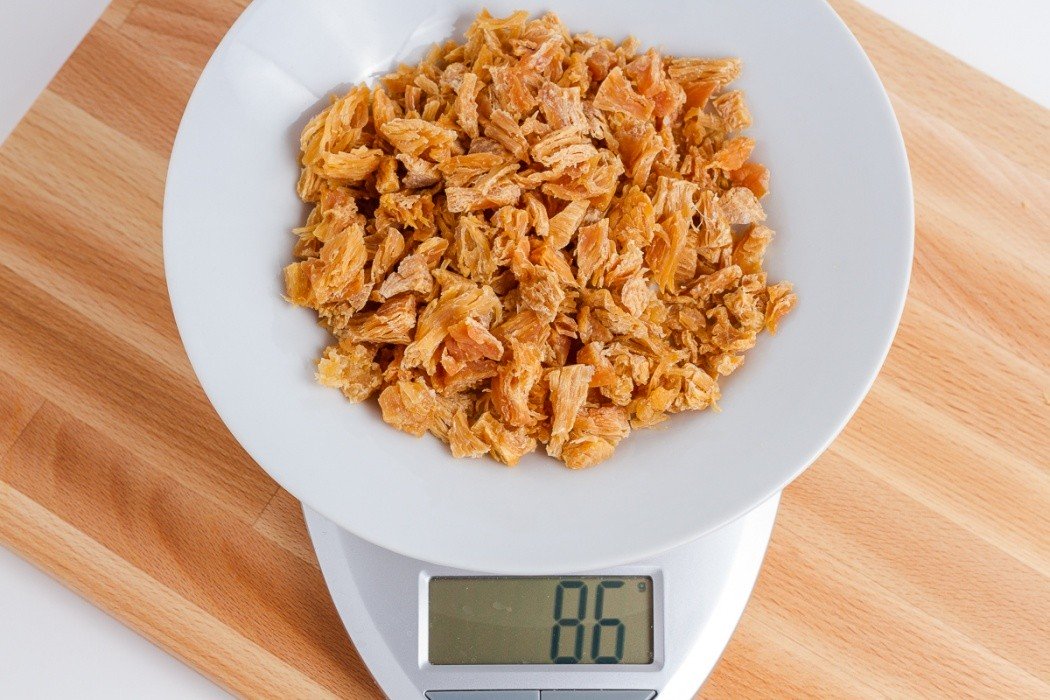
Temperature
145°F
Dry Time
4-6 hours
Wet Weight
290 grams
Dry Weight
86 grams
Notes / Directions
- Canned chicken is cooked under pressure and rehydrates better than typical cooked chicken.
- Use only canned chicken breast packed in water, they're usually advertised as 'fat-free' and have a 2% fat content.
- Even the 2% fat of canned chicken is quite greasy, rinsing under hot water before dehydrating will remove even more oils.
- Be sure to break larger pieces of meat into smaller sizes; this can be done my just pressing on it since the chicken is so tender.
- After dehydrating, look for pieces that are shiny or obviously greasy and discard them to increase storage life.
- If you choose to cook your own chicken, be sure to cook it in a pressure cooker and use only breast meat.
